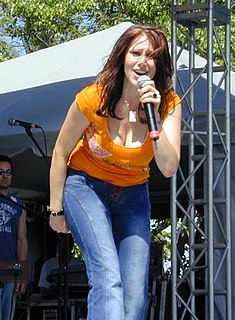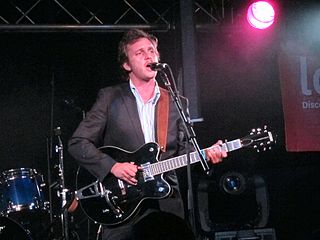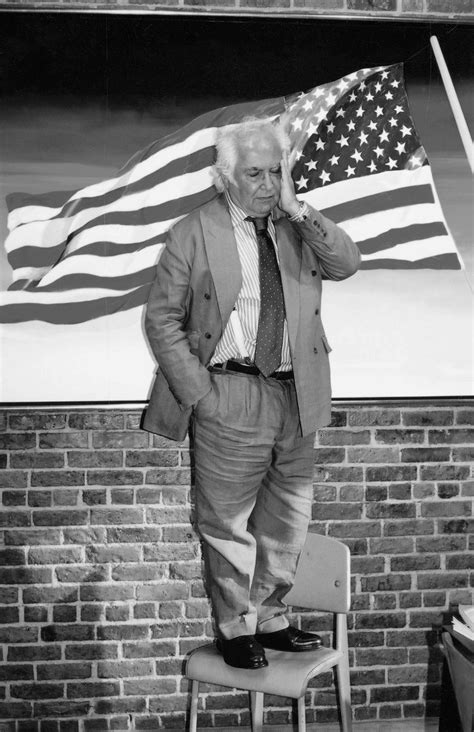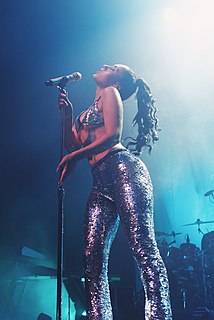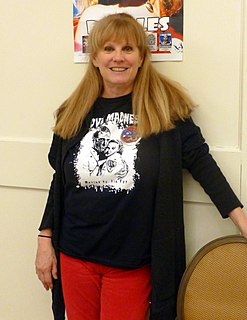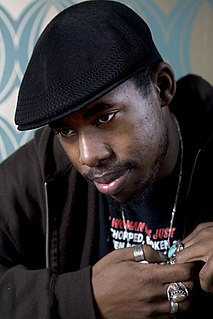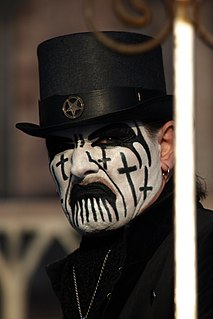A Quote by Usher
When I was 14 years old, I was talking about much more mature things because of the writers that I had at the time. My first album was tied into what the culture was at that moment, which was Jodeci, Al B. Sure, Puff, The Hitmen. I reaped the benefits of being part of Bad Boy's movement. That was my introduction.
Related Quotes
I'm definitely seeing more and more new people at shows, which is exciting. It's nice for me, because it's a fresh start. I don't feel as obligated to play old favorite songs - it feels like I'm free to try new things because I'm meeting people for the first time. But there's a lot of people who are showing up and they know all the words to the first album and they're requesting songs from the second album.
For me, being Christian Armenian, born into the Islamic culture in Iran and then, at the age of 13, being sent to England and embracing the English culture and becoming part of so-called swinging London and the era of euphoria and celebration that the '60s represented is very critical. It was a moment when, for the first time, the business of internationalism was being effectively represented-in music, art, cinema, design. Before that, everything was directed toward the old industry, the old school, the old format, and there was no room for varieties to evolve.
To express dynamic motion through a static moment became for me limited and unsatisfactory. The basic idea was to liberate myself from this old concept and arrive at an image in which the spectator could feel the beauty of a fourth dimension, which lies much more between moments than within a moment. In music one remembers never one tone, but a melody, a theme, a movement. In dance, never a moment, but again the beauty of a movement in time and space.
I think what a lot of people don't realize is how much being the leader of this movement weighed upon him. After all, he [Dr. Martin Luter King] was only 39 years-old when he was assassinated, and only 36 during the Selma campaign. He always seemed older than he actually was, and I believe part of that had to do with just how much life he had to live in order to lead this movement.
My strategy to show caricature idea of American youth culture, which I think worked after talking about it for so many years, is that I had only a few things. I wanted to buy my own wardrobe for Rock 'N' Roll High School, which of course they said "Yes" to, because their clothing budget was $200, and I ended up spending my whole salary - which I think was about $2,100 - on my clothes. And also, any time I was onscreen, I wanted to have as much energy as I possibly could. I think it just really worked for the character.
The very first idea I ever had about making a film... my first thought about ever being a filmmaker was when I was sixteen years old and I wanted to make a Viking movie. And I wanted to make it in old Norse, which I was studying at the time. It's odd because at that age that's a stupidly ridiculous idea 'cause how will I ever be a filmmaker.
We think of the 1950s as an oppressive time in the culture, and indeed it was, but it was also in many ways a more secular moment, and one in which great scientific achievements flourished. I don't want to get too gauzy about this, but there was much more respect for science as a necessary part of society.
It was difficult at Villa because they'd struggled for two years and I'd come mainly from Barcelona B in the second division in Spain. I needed time to adapt but Tim Sherwood and Remi Garde had to win games; they didn't have time to think about little things about my game. It was a bad moment, it was such a hard, sad experience.
The success [of the X-Men], I think, is for two reasons. The first is that, creatively, the book was close to perfect ... but the other reason is that it was a book about being different in a culture where, for the first time in the West, being different wasn't just accepted, but was also fashionable. I don't think it's a coincidence that gay rights, black rights, the empowerment of women and political correctness all happened over those twenty years and a book about outsiders trying to be accepted was almost the poster-boy for this era in American culture.

